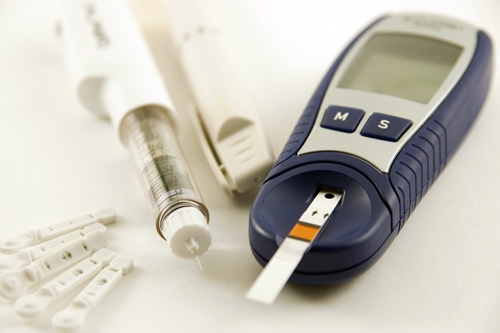4 January 2016. Two new clinical trials are planned to test a smartphone-based closed-loop artificial pancreas system for people with type 1 diabetes. The system is developed by teams at University of Virginia in Charlottesville and Harvard University, and licensed for commercial development by TypeZero LLC, also in Charlottesville. The trials are funded by a $12.7 million grant from National Institute of Diabetes and Digestive and Kidney Diseases, part of National Institutes of Health.
Type 1 diabetes is sometimes called insulin-dependent, immune-mediated, or juvenile-onset diabetes, although it can occur at any age. It is believed to be caused by an auto-immune reaction where the body’s defenses attack its own insulin-producing cells in the pancreas. Without enough insulin, glucose builds up in the blood stream instead of going into the cells. The body is unable to use this glucose for energy, which leads to the symptoms of type 1 diabetes. Centers for Disease Control and Prevention says about 5 percent of all people with diabetes have type 1, estimated at about 1.45 million in the U.S.
The trials aim to test a system its developers call Diabetes Assistant, a device that monitors glucose levels in the blood, then controls release of insulin in the individual wearing it. In addition, the system is designed to predict blood glucose levels in advance, to supply the appropriate insulin. The device has a monitor placed under the skin, an insulin pump, and software with a control algorithm that resides on a smartphone. The algorithm calculates insulin needs based on factors such as meals consumed, physical activity, sleep, stress, and metabolism.
Developers of Diabetes Assistant say the device was tested in the U.S. and Europe for usability and reliability, and is now ready for large-scale clinical trials. The study team led by Boris Kovatchev, director of the Center for Diabetes Technology at University of Virginia, and Frank Doyle, dean of Harvard’s Engineering and Applied Sciences school, first plan to test Diabetes Assistant for safety and functionality with 240 people having type 1 diabetes. That trial, at multiple sites in the U.S. and Europe, will compare the artificial pancreas to a standard insulin pump on control of blood sugar levels and reduction of risk from hypoglycemia, or abnormally low blood sugar.
The second trial will follow 180 of the original 240 participants for another 6 months, looking particularly at algorithm for controlling the device. The algorithm aims to control blood sugar levels within an acceptable range, instead of aiming for a specific numerical target, also called a zone model-predictive control strategy. This second trial is particularly important for determining if the device can work under a wide range of human conditions affected by hormonal swings, physical stresses, anxiety, and other conditions.
TypeZero, a spin-off company from University of Virginia, licensed the Diabetes Assistant technology, and is adding in features to the software that provide real-time advice to device users about type 1 diabetes, as well as capturing and collecting data in a cloud database for analytics. Kovatchev is listed as the company’s chief mathematician.
Doyle, who began research 20 years ago on developing an artificial pancreas, tells more about the project in the following video.
- Sanofi, Google to Partner on Diabetes Care, Devices
- Trial Testing App to Manage Diabetes, Foot Ulcers
- Mobile Diabetes Device Maker Lands $20M in Venture Funds
- Chip Device Developed to Quickly Test for Type 1 Diabetes
- Diabetes App Developer Files for FDA Pre-Market Clearance
* * *


 RSS - Posts
RSS - Posts
You must be logged in to post a comment.